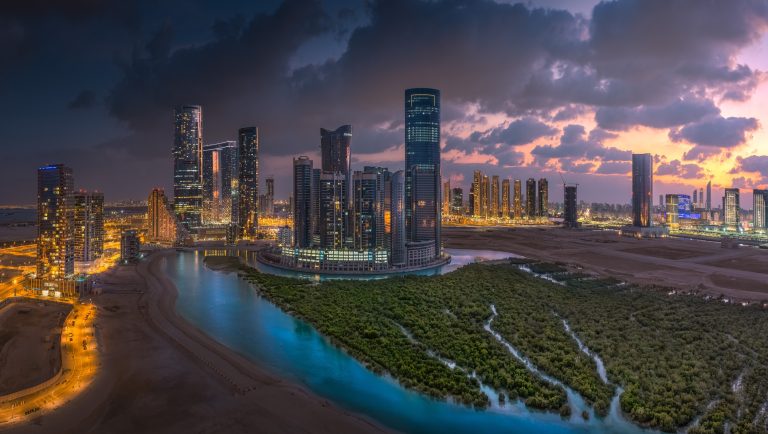Safeguarding Threatened Habitats in the Region
Abu Dhabi, the capital city of the United Arab Emirates, has reached a significant milestone in environmental conservation. The Environment Agency – Abu Dhabi (EAD) recently concluded a comprehensive assessment of both terrestrial and marine ecosystems, making it the first city in the region to complete such an evaluation following the standards set by the International Union for Conservation of Nature (IUCN).
This accomplishment paves the way for better protection of endangered habitats and ecosystems within the emirate.
The Abu Dhabi Red List of Ecosystems, a crucial component of the Abu Dhabi Assessment Project led by EAD, will play a vital role in safeguarding the region’s biodiversity. By identifying and prioritizing threatened ecosystems, this evaluation will inform the expansion of protected areas, reinforcing the commitment to mitigate and adapt to the impacts of climate change. The timing is especially significant as the UAE prepares to host COP28 later this year.
IUCN: A Global Environmental Organization:
IUCN, the world’s oldest and largest global environmental organization, brings together members and volunteers from 185 countries. The organization’s six Commissions focus on driving change through education, communications, and knowledge development regarding species’ status and threats. Since 2013, EAD has been an official member of IUCN and recognized as a strategic partner. In 2020, the Ministry of Climate Change and Environment also joined IUCN, representing the UAE’s dedication to environmental conservation on a global scale.
Key Findings and Evaluation Process:
The assessment encompassed 16 terrestrial and marine ecosystems within Abu Dhabi. The results classified twelve ecosystems as ‘Threatened,’ two as ‘Critically Endangered,’ five as ‘Endangered,’ and five as ‘Vulnerable.’ Remarkably, no collapsed ecosystems were identified, highlighting the need for proactive conservation efforts.
Following IUCN standards, the evaluation process facilitated the formulation of protection and preservation measures. It enabled the development of long-term sustainability plans for the identified threatened ecosystems. Some of the most vulnerable ecosystems include mountains and wadis, coastal plains, mangrove forests, saltmarshes, and coral reefs. Recognizing their significance, many of these ecosystems are already part of the network of protected areas managed by EAD.
Conservation Efforts in Abu Dhabi:
EAD oversees a network of 20 protected areas dedicated to conserving Abu Dhabi’s biodiversity. It has a specific focus on endangered species and ecosystems. These areas benefit from extensive monitoring of species and habitats. Abu Dhabi’s remarkable achievements in mangrove and coral reef restoration have gained international acclaim. These initiatives have been recognized as among the top ten pioneering restoration efforts worldwide under the auspices of the ‘UN Decade on Restoration.’
Abu Dhabi’s completion of the ecosystem assessment in line with IUCN’s standards signifies a significant step forward in environmental conservation. Abu Dhabi showcases its commitment to safeguarding its natural heritage.








0 Comments